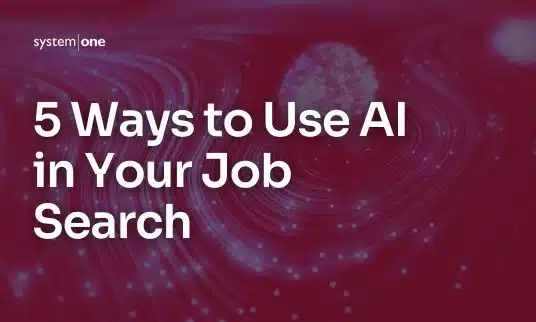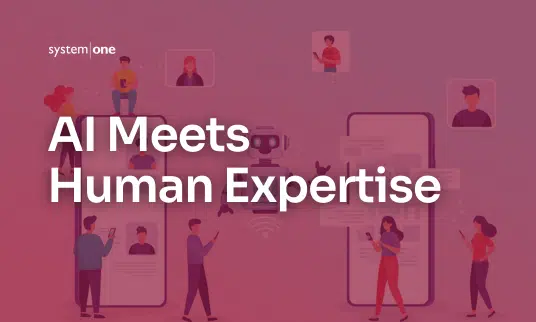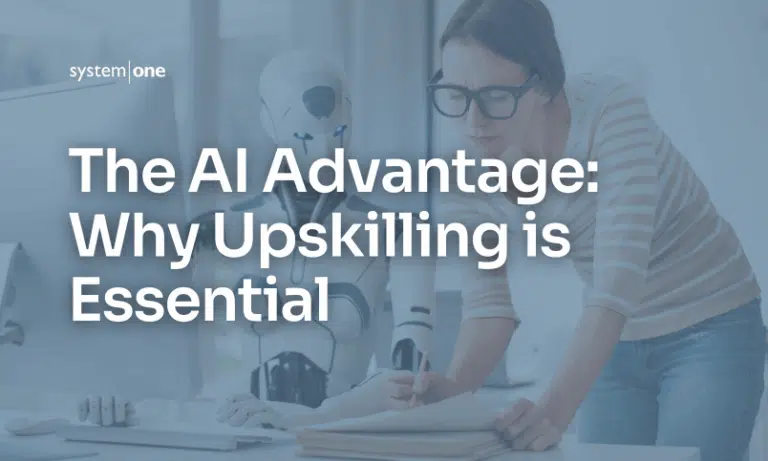5 Ways to Use AI in Your Job Search

In today's fast-paced job market, staying competitive means leveraging every available tool to enhance your job search. While traditional methods like in-person and online networking and working with recruiters remain vital, integrating Artificial Intelligence (AI) into your job search is crucial. Evolving with technology streamlines your job hunt and opens doors to opportunities you might otherwise miss. Here are five key ways to utilize AI in your job search.
1. Resume and Cover Letter Optimization
Resume Parsing: AI tools can analyze your resume to identify key skills and experiences, suggesting improvements to make your profile more appealing to recruiters. These tools can ensure that your resume aligns with industry standards and highlights the attributes most sought after by employers.
Tailored Cover Letters: Writing a cover letter can be daunting, but AI can help. AI can generate personalized cover letters tailored to specific job descriptions, ensuring your application stands out by highlighting relevant experiences and skills matching the job requirements.
2. Interview Preparation
Practice Interviews: Preparing for interviews can be nerve-wracking. AI-powered platforms can conduct mock interviews, providing real-time feedback on your answers, body language, and tone. This practice can help refine your responses and build confidence before the interview.
Question Generation: AI tools can generate potential interview questions based on the job description and your resume. This allows you to prepare thoroughly, anticipate the types of questions you might face, and formulate strong, relevant answers.
3. Skill Assessment and Development
Skill Gap Analysis: AI can analyze job descriptions and your resume to identify skill gaps and suggest areas for improvement. This targeted approach helps you focus on acquiring the most relevant skills for your desired roles.
Online Courses: Once your skill gaps are identified, AI platforms can recommend relevant online courses to help you bridge those gaps. Continuous learning and skill development are crucial to staying competitive in today's job market.
4. Application Tracking and Management
Application Status Tracking: Keeping track of multiple job applications can be challenging. AI tools can help manage this process by tracking the status of your applications, sending follow-up reminders, and providing updates on your progress.
Document Management: AI can organize and store all your application documents, making them easily accessible when needed. This ensures you have all necessary documents at your fingertips, ready to be submitted immediately.
5. Market Trends and Insights
Labor Market Analysis: AI can provide insight into job market trends, salary benchmarks, and in-demand skills. This information can help you make informed decisions about your career path and target roles that offer the best growth opportunities.
Company Research: AI tools can gather comprehensive information about potential employers, including company culture, recent news, and financial health. This research helps you tailor your applications and prepare for interviews with a deeper understanding of your target companies.
Conclusion
Integrating AI into your job search is not just about keeping up with the latest technology—it's about enhancing your overall strategy to land your dream job. By leveraging AI for resume optimization, interview preparation, skill development, application management, and market insights, you can streamline your job search process and increase your chances of success. At System One, we believe in combining the best of both worlds: leveraging technology while maintaining the personal touch of our exclusive relationships with large private and public organizations. Embrace AI in your job search and stay ahead of the competition in today's dynamic job market.
Want to learn more about how you can utilize AI?? Check out our previous episode of Sound Off with System One: Master Your Job Search with AI.
Looking for business solutions?
Explore System One

